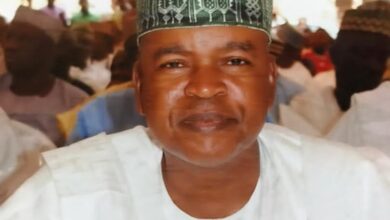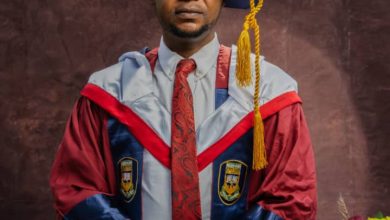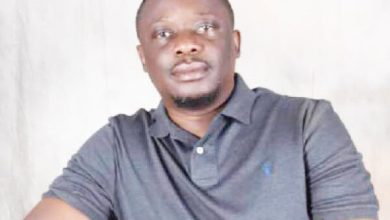I’ll give representation new meaning in Kwara – Kannike

Hon. Abubakar Amuda Kannike represents Ilorin South/East federal constituency in the National Assembly. In this interview with HEAD POLITICS, MUMINI ABDULKAREEM, he talks about why he is re-contesting for the seat and his plans for his constituency if elected. Excerpts:
Why should your constituency entrust you with another four years?
I believe I have done the best under the circumstance despite the fact that I was a first timer by making sure they were properly represented. In this regard, we have a contact point and a face of representation with my constituency office which opened avenue of contact between us for them to know where to look for me whether in Ilorin or Abuja. We made sure that the office was properly manned by employing twenty-three constituency liaison officers one from each ward. Their inputs determined the relevant bills and motions we have moved. We were also able to attract federal presence to the constituency and addressed issue of infrastructure. I gave a commitment of one borehole per ward and we have done twenty out of the twenty three with eight coming on stream very soon which means we will surpass our commitment. We have provided fifteen transformers and built and equipped many classrooms. Over thirty indigent students are on our scholarship and we have an e-learning centre to teach basic computer skills to equip beneficiaries for CBTs exams. We also made sure that we paid medical bills of the poor and contribute to other socials services that have strengthened the bond between us and the people we represent. We have shown enough empathy for them to trust us with the responsibility again.
Some people see you not as a politician rather a technocrat and believe that has been an issue with the way you have represented, how do you react to this?
You see, there are two legs to this assignment. First is the act of representation which is basically a technocratic work. You need to draft bills and motions and push them on the floor of the house and make sure you take part in budgeting process and ensure your constituency is properly taken care of. All these are things that are not alien for somebody who has a technocratic background. The other leg is that you need to politick appropriately and haven stayed long in the environment spending almost thirteen years around government corridors, I think I have also learnt some high level politics from the best people around. We have to strike a balance and continue to review the situation between the job of representation, which is quite technocratic and the politics of it to ensure you have a good rapport with the political stakeholders to attract dividends to the constituent.
If you were returned as a ranking member, how would that impact on your representation?
One thing I have told my constituent in my comeback bid is that there are some privileges a non ranking member cannot benefit from like being a principal officer who is better positioned to attract more dividends of democracy to his constituent. And if perchance I am not, there is the privilege of being the chairman of a key committee which will give me proper opportunity and voice to attract dividend to my constituent. The National Assembly is a huge crowd of three hundred and sixty members; a first timer might spend two years before getting grasp of how the place works. But we have invested now and by the time we come back we would have understood the terrain better and consolidate on our first four years. This is the time for my constituent to reap the dividends of their four years investment.
In other places, such aspiration has caused acrimony between stakeholders, if you don’t get this ticket, what happens?
This is all about service and I am trying to volunteer myself to consolidate on what I have done so far for my people. It is politically correct for me to indicate my intention and vie for it again. If I am able to get it, Alhamdulillahi and if not, then we move on. Yes, politics has become a job because there are some pecuniary benefits but thank God we were also doing other jobs before we came into the political arena. What we need to do is to go back to what we were used to and in the future we can decide whether we want to serve in the public service again or not. But nothing is a do or die affair for me.
What would be your first three blueprints for the people of your constituency if you are returned?
I am very passionate about two things in this circumstance. I am very concerned about the rate of unemployment among my constituents. That is going to be a priority for me because we have parents who have invested so much in trying to educate their kids. Being in Abuja, I have realised that the jobs are not there. We have started a lot of vocational and entrepreneurship trainings and even sponsored a radio programme Atelewo eni to preach entrepreneurship and teaching people how to start businesses. We have set aside capitals for those that had submitted business proposal which are scrutinised by consultants and we selected six businesses, three each from the two constituencies and we supported them. But we need to rave it to another level and be job makers rather than seekers. We want to support people to be business initiators and employers of labour. With my opportunity of world travel, I know that most economies are driven by small and medium scale enterprises. I want to make my constituency a hub for business initiative and prove to people that government jobs should not be too attractive. We will revisit a lot of our core traditional trade like Aso Ofi and pottery and try to take them to the next level to attract global attention. In agriculture, we will try to build value chain businesses through the youth. Secondly is to attract federal presence to blot out the infrastructural deficit in my constituency like provision of more classrooms, agrarian roads to ease movement of farm produce to the market and federal medical centres by enforcing inclusion in budget and network with my colleagues who might be chairmen of relevant committees. So employment, infrastructural attraction and ensure that I push laws that will positively impact them like the petition for compensation I moved on the floor regarding the demolition of houses at pipeline road Ilorin by the NNPC and the Nigerian Army, which is now before the committee on petition. I will ensure I drive the process of their invitation for them to be compensated. We have visited the Abata Karuma flooding site and have taken pictures. We are going to write letters to NEMA and Ministry of Environment and take their matter up for them to get succour. In the past, I was able to move motion on the nuisance factor of the Oke-Kura prison where it is currently located which attracted oversight function and visitation by the committee on interior and we are driving the possible relocation of the prison from there. That is my job and what a rep should do.
What is your take on the insinuation you have benefitted a part of your constituency to the detriment of the other?
I cannot afford to be bias because the two constituencies are equal stakeholders before me. For instance, I had opportunity of doing solar streetlight which was for a stretch of less than one kilometre of road and I knew I couldn’t do one each for east and south. I had to look for the common area and take it to the street between Oja-gbooro and Isale Maliki which is the boundary between the two. We have tried to be fair.





